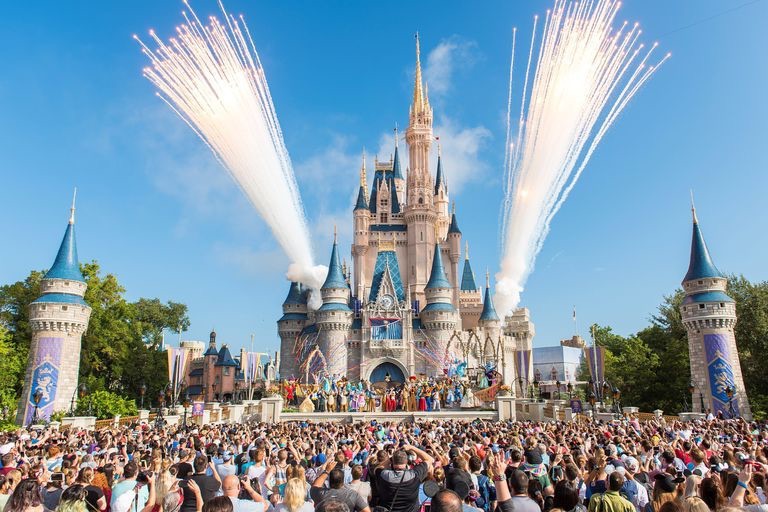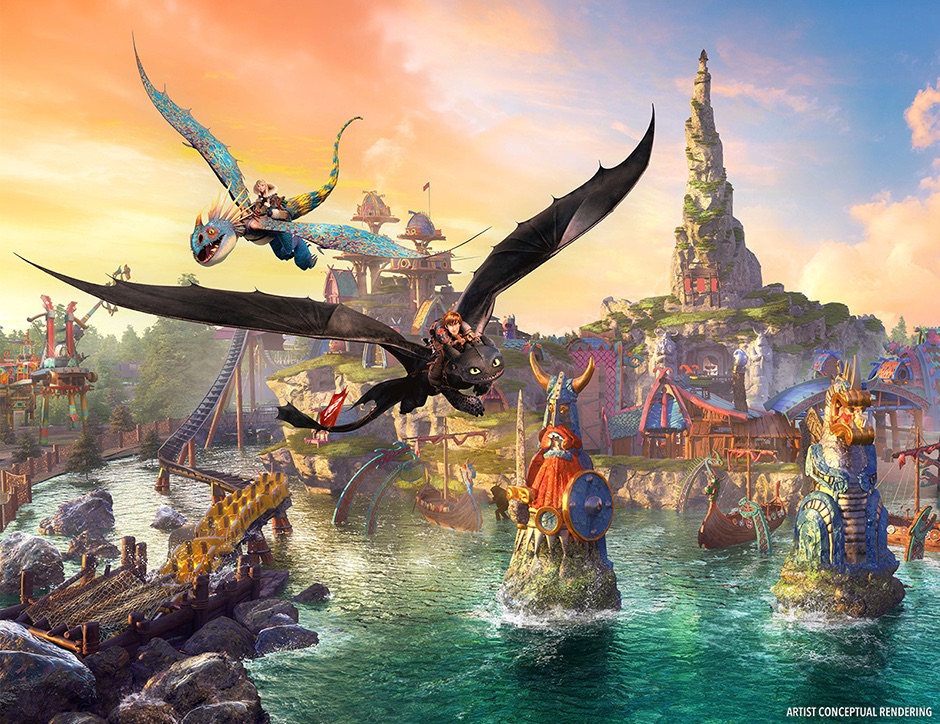Tourism has a profound economic impact on Orlando, Florida, contributing significantly to its local economy. The economic impact of tourism on Orlando is extensive, encompassing job creation, increased revenue for local businesses, and substantial tax benefits for the city and its residents. As one of the top travel destinations in the United States, Orlando attracts millions of visitors each year, and their spending fuels various sectors of the economy. This article delves deeper into how tourism affects different aspects of Orlando’s economy.
- 76 million visitors were welcomed by Orlando in 2023.
- 405,000 jobs were supported by tourism in the Orlando area in 2023.
- $9.4 billion in spending contributed to the local economy in 2023.
- $3.5 billion in sales tax revenue was generated by tourism for Florida in 2023.
To grasp the full scope of tourism’s economic impact, it is essential to look at several key areas: employment, business revenue, and tax revenue. The city welcomed over 76 million visitors in 2023 alone. This influx of tourists generates considerable spending, which reverberates through the local economy. Visitors spend on a range of services including lodging, dining, entertainment, and shopping, each expenditure benefiting local businesses and contributing to the overall economic vitality of the region.
Employment Impact
Employment is one of the most direct benefits of tourism. The tourism industry in Orlando supports a significant number of jobs, which spans various sectors including hospitality, food service, entertainment, and transportation. According to the U.S. Travel Association, tourism generated approximately 405,000 jobs in the Orlando area in 2023 (U.S. Travel Association, 2024). This figure represents a broad range of employment opportunities, from positions within major theme parks and hotels to roles in smaller, family-owned restaurants and boutique shops.

The employment created by tourism is crucial for the local workforce. For many residents, these positions provide not only income but also career development opportunities and job stability. The ripple effect of these jobs can be seen in related industries as well. For example, local suppliers and service providers that cater to the hospitality and entertainment sectors also benefit from the demand created by tourism.
Revenue for Local Businesses
Local businesses experience a notable boost from the tourism sector. Visitors spend money on accommodations, dining, entertainment, and shopping, which benefits a wide array of local enterprises. According to the Orange County Convention Center, tourism contributed around $9.4 billion in spending to the local economy in 2023 (Orange County Convention Center, 2024). This expenditure supports not only large establishments like theme parks and hotels but also smaller businesses such as restaurants, boutiques, and attractions.
The revenue generated from tourist spending has a multiplier effect. Money spent by tourists circulates through the local economy, leading to further economic activity. For instance, a visitor dining at a local restaurant may also shop at nearby stores, use local transportation services, and explore other attractions, each of which supports different segments of the local economy.
Tax Revenue
Tax revenue is another significant benefit derived from tourism. The state and local governments collect substantial taxes from tourism-related activities. For example, Florida’s tourism industry generates millions of dollars in sales tax revenue, which helps fund public services and infrastructure projects. In 2023, the state of Florida collected approximately $3.5 billion in sales tax revenue from tourism, with a significant portion of this amount benefiting Orlando and the surrounding areas (Florida Department of Revenue, 2024). These funds are essential for maintaining and improving public facilities, enhancing the quality of life for residents, and supporting various community initiatives. For more information, visit the Florida Department of Revenue’s website at https://floridarevenue.com.
In addition to sales tax revenue, tourism also contributes to other forms of tax revenue. Hotel and lodging taxes, often referred to as transient occupancy taxes, are collected from visitors staying in local accommodations. These taxes help fund tourism promotion efforts, public amenities, and local infrastructure improvements.
Convention and Event Impact
Tourism-related events and conventions contribute further to the economic impact. Orlando is home to the Orange County Convention Center, one of the largest convention centers in the United States. It hosts numerous events throughout the year, attracting thousands of attendees who spend money on accommodations, dining, and entertainment (Orange County Convention Center, 2024). The influx of convention-goers has a measurable positive effect on the local economy, providing a significant boost to business and creating temporary job opportunities. For more details, visit https://www.occc.net.
Events held at the convention center range from industry-specific conferences to large-scale trade shows and consumer expos. Each of these events brings visitors from across the country and around the world, further stimulating local economic activity. The increased demand for services during these events often leads to short-term hiring boosts and additional revenue for businesses catering to the needs of attendees.

Infrastructure Development
The benefits of tourism also extend to infrastructure development. To accommodate the growing number of visitors, investments are continually made in transportation, utilities, and public spaces. For instance, the expansion of Orlando International Airport has been a critical infrastructure project aimed at handling increased passenger traffic (Greater Orlando Aviation Authority, 2024). Such developments not only enhance the visitor experience but also create jobs and support local contractors and suppliers. For additional information, visit the Greater Orlando Aviation Authority’s website at https://orlandoairports.net.
Infrastructure improvements are vital for maintaining the city’s ability to host large numbers of visitors. Upgrades to roads, public transit systems, and utilities ensure that Orlando can continue to provide a high-quality experience for tourists while managing the demands placed on local resources. These projects also often benefit residents by improving overall city infrastructure and services.
Cultural and Social Benefits
In addition to the direct economic impacts, tourism also fosters cultural and social benefits. The presence of a diverse range of tourists enriches the local culture, promotes intercultural exchange, and supports a vibrant community atmosphere. The growth of the tourism sector has led to a broader range of cultural events and activities available to residents, enhancing the overall quality of life in Orlando.
Tourism helps to fund and support local cultural institutions, including museums, theaters, and festivals. These institutions not only attract visitors but also contribute to the cultural fabric of the city, offering residents access to a variety of cultural and recreational activities.
Challenges and Sustainable Practices
However, it is also important to recognize and address potential challenges associated with tourism. Over-reliance on tourism can lead to economic vulnerabilities, particularly in times of economic downturns or global events that affect travel. Moreover, increased visitor traffic can strain local resources and infrastructure. Balancing the economic benefits with sustainable practices is crucial to ensure that tourism continues to positively impact the city without leading to overcrowding or environmental degradation.
Efforts to manage and mitigate the negative impacts of tourism include implementing sustainable practices, investing in green infrastructure, and promoting responsible tourism. These measures help to preserve local resources, reduce environmental impact, and ensure that tourism remains a positive force for the community.
In conclusion, the economic impact of tourism on Orlando is both extensive and multifaceted. From job creation and business revenue to tax benefits and infrastructure development, the tourism industry plays a vital role in driving the local economy. By continually investing in tourism-related infrastructure and fostering a welcoming environment for visitors, Orlando can continue to reap the economic benefits while addressing any associated challenges. The city’s ability to balance economic growth with sustainability will be key to maintaining its status as a premier travel destination while ensuring long-term prosperity for its residents.






